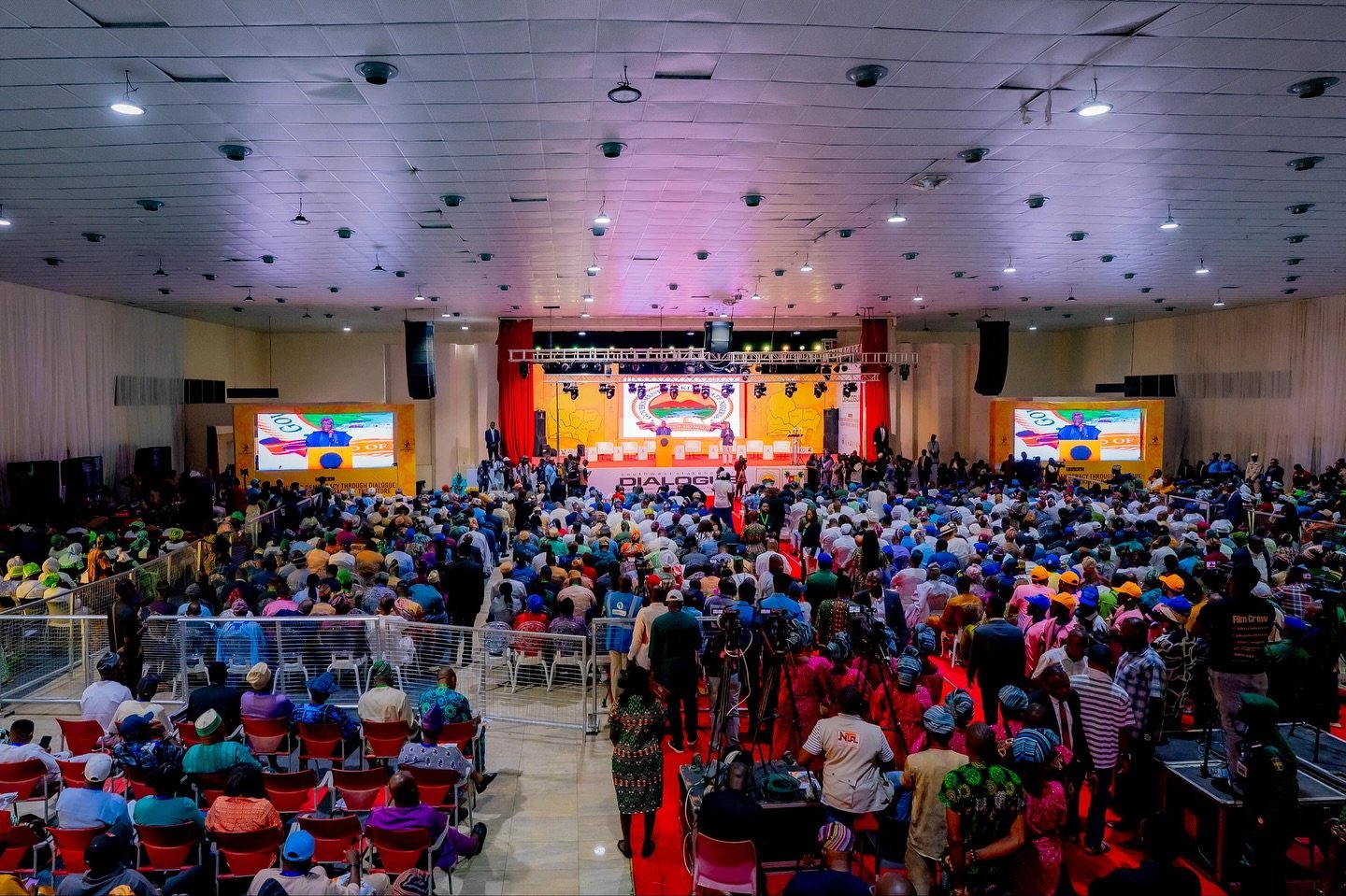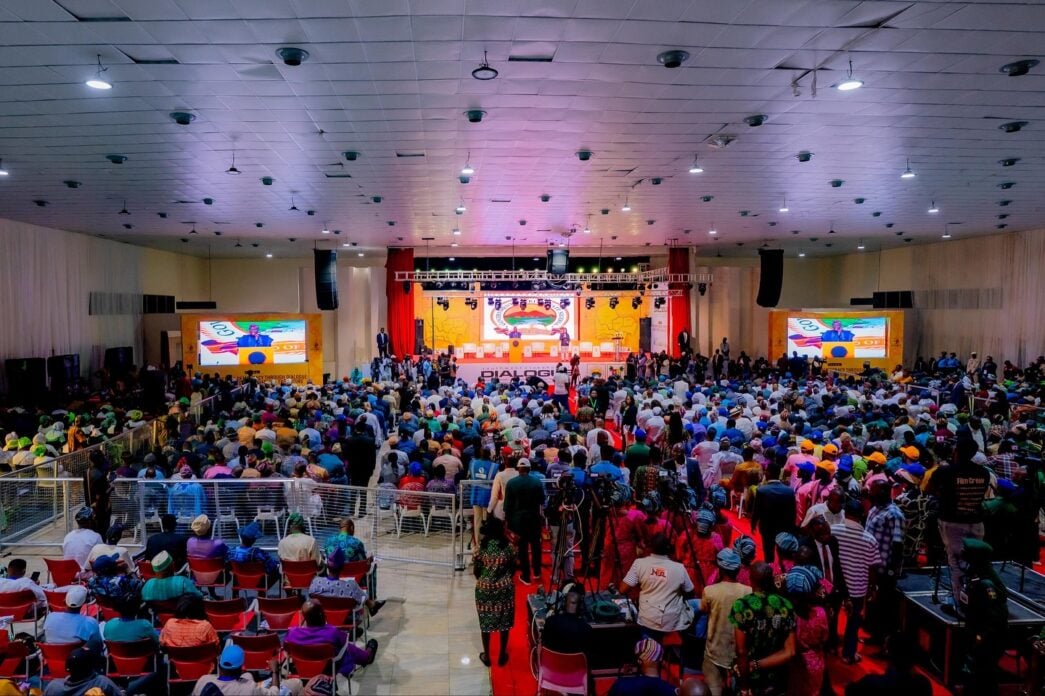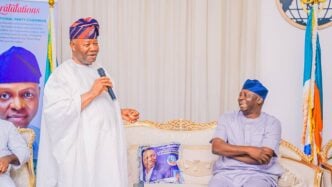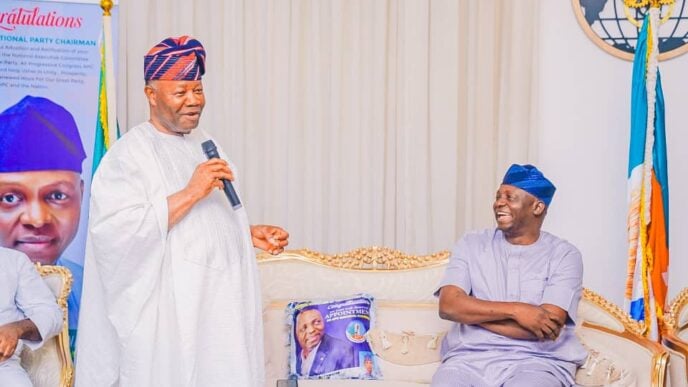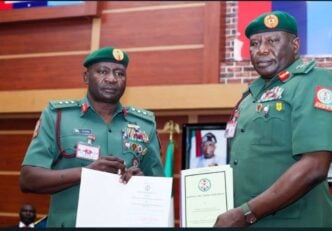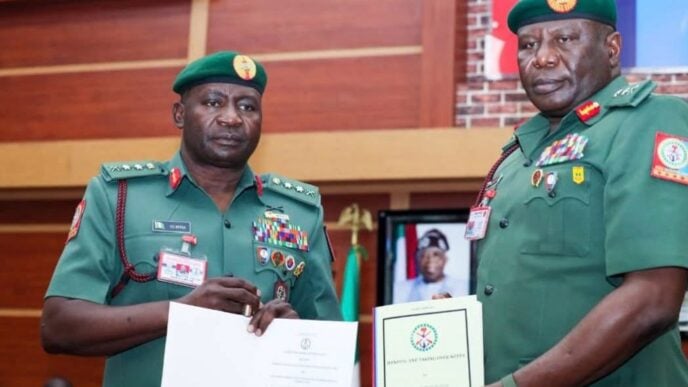Early this week, I joined members of the Presidential Communication Team to Akure, Ondo State, on an important assignment – the Citizen-Government Engagement in the South-west. The event, which was held at the International Conference Centre, Akure, was a confluence of ideas, treatises, thoughts, and prescriptions on the development effort of the South-west zone and, in a broader context, of Nigeria. It sufficiently achieved its purpose.
The town hall was well-attended, attesting to its significance. Governor Lucky Aiyedatiwa of Ondo State, the chief host; Governor Babajide Sanwo-Olu of Lagos State, the co-host, and representatives of the governors of other South-western states were on hand. Traditional rulers, the leadership of Afenifere, thought leaders, business executives, religious leaders, and citizens of all persuasions were at the indaba. The federal government delegation, led by the Minister of Finance and Coordinating Minister of the Economy, Mr Wale Edun, was also on hand.
The summit was robust in intellectual offerings, with challenges deconstructed and solutions inventorised. It was not another talk-shop. With a two-way communication dynamic, the representatives of the government on the one hand and the stakeholders on the other hand jaw-jawed and compared notes on the fundamentals of development, democracy, and nation-building.
The Minister of Finance reiterated that the economy had recovered and is now on the path of growth and prosperity. He emphasised that the current reforms would be sustained so that their gains can percolate further down to the citizenry. He also enumerated some of the policies and programmes of the administration, such as CREDICORP and NELFUND, with Nigerians of all demographics, geographic distribution, and backgrounds as beneficiaries.
Advertisement
Minister of Power, Adebayo Adelabu, gave a good rendition of the developments in the power sector. He extolled the Electricity Act Amendment Bill, 2024, signed by President Bola Tinubu, which decentralises the electricity sector, as causing a tectonic shift in the industry.
‘’The vibrancy we have today has never been like this,’’ the Minister said.
He said the electricity sector has generated over 2 trillion naira between 2023 and 2025, and that electricity distribution companies have recorded a 70 percent increase in revenue so far.
Advertisement
The Minister of Marine and Blue Economy, Chief Adegboyega Oyetola, spoke eloquently on the milestones achieved in the sector in the past two years. He said there has been no incident of piracy on our waters within this period, which further reduces insurance premiums on Nigeria-bound cargoes and vessels.
The Special Adviser to the President on Energy, Mrs Olu Verheijen, explained that the government is expanding pipelines, such as the Escravos–Lagos System, delivering gas to industries in Sagamu, Ibadan, and Ilorin, with Ondo State directly benefiting as the network spreads across the South-west. She also said over $8 billion in new upstream gas investments have already been unlocked, with another $20 billion expected by 2029.
‘’Gas is not just for electricity. It is the raw material for fertilizers, methanol, and petrochemicals. These are the nutrients that make our farmlands more productive, our factories busier, and our exports more competitive. New gas projects will feed fertilizer and petrochemical plants that support farmers in Ondo, Ekiti, and Oyo, reducing fertilizer costs, boosting crop yields, and powering local agro-processing industries,’’ Mrs Verheijen said.
The Minister of State for Health, Dr Iziaq Adekunle Salako, revealed that 14 million girls have been vaccinated against HPV in Nigeria under the Tinubu administration, describing it as the largest in Africa.
Advertisement
From the private sector, Mr Olufemi Awoyemi, chairman of Proshare Limited, who delivered a keynote address, acknowledged that with the bold reforms and successful policy interventions undertaken by the Tinubu government, the administration has steered the economy towards a recovery – and that Nigeria’s recent removal from the list of countries under increased financial monitoring, commonly referred to as the “grey list” by the global Financial Action Task Force (FATF) provides a further reference point to how far we have come from despondency to definite expectation.
‘’The data explicitly indicate that this is the first time Nigeria will recover from an economic crisis without a global fiscal respite, and that this recovery is not premised on luck but predicated on policy, not default but by design,’’ he said.
My takeaway from the conference is best captured in the words of Chief Bisi Akande, who delivered a trenchant speech: ‘’We support President Tinubu not only because he is our own but because he is the one with the courage to make change happen, to take tough decisions.’’
Fredrick Nwabufo is Senior Special Assistant to the President on Public Engagement
Advertisement
Views expressed by contributors are strictly personal and not of TheCable.

